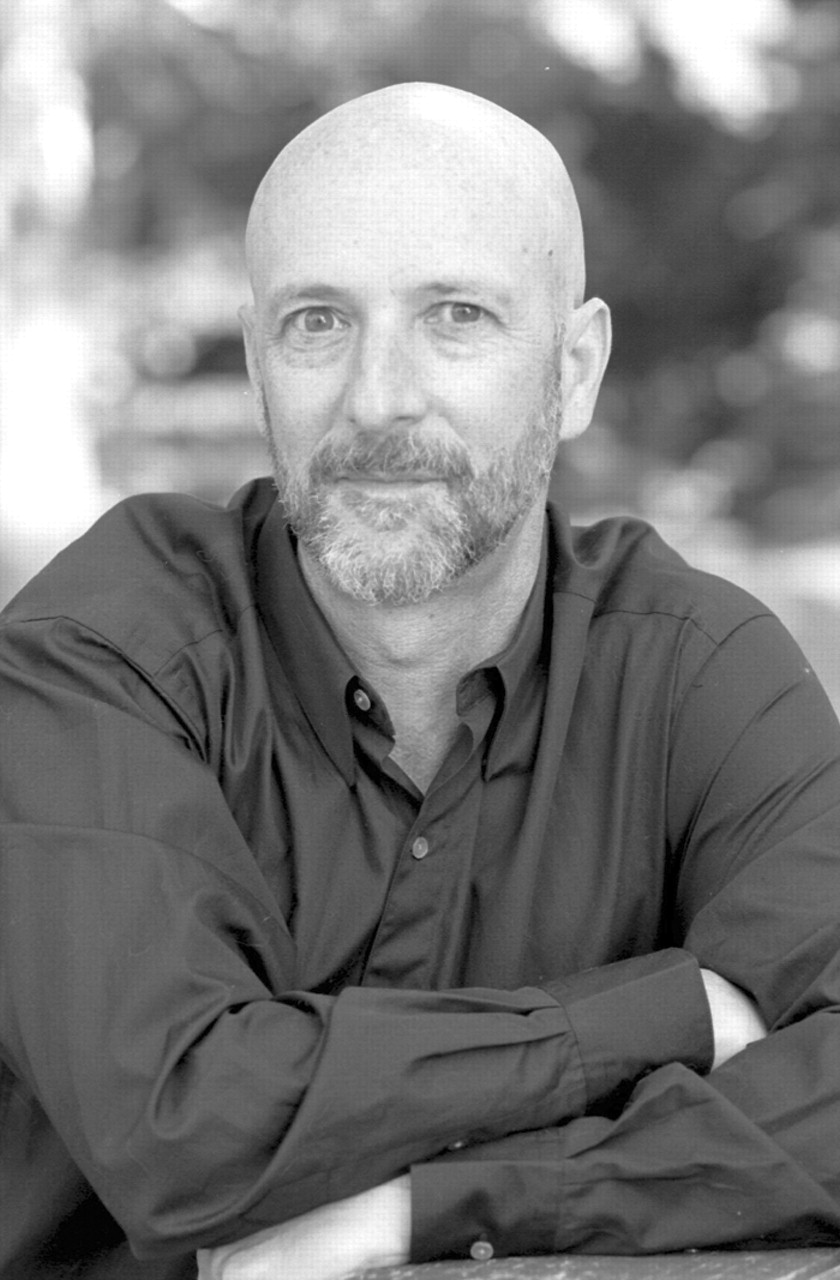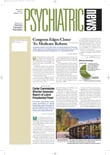“Was I not interested in man?. . . . There the thing was, right in front of me. I could touch it, smell it. It was myself, naked just as it was, without a lie, telling itself to me in its own terms.”
So wrote physician and poet William Carlos Williams of the doctor’s proximity to the human condition, a rich communion that must have fed the muses of notable physician-authors through the ages including Chekhov, François Rabelais, and Williams himself.
And his comment forms the inscription to a fresh record of one doctor’s passionate encounter with sickness, health, pain, and dying.
How JFK Killed My Father, a book-length collection of poems by psychiatrist Richard M. Berlin, M.D., is the winner of the 2002 Pearl Poetry Prize.
Berlin received $1,000 for the award, which he has donated to the University of Massachusetts Medical School, where he is an associate professor of psychiatry, to establish a creative-writing award for medical students.
His success as a poet—he earlier received the South Carolina Poetry Society’s 1999 Chapbook Award for “Code Blue”—is testament either to the regenerative capacities of middle age or to the fact that there was a poet gestating within the psychiatrist all along.
Berlin began writing poetry less than 10 years ago. “I was at a place in my career where I had achieved a lot in a conventional way within medicine,” he told Psychiatric News. “I had published a lot of papers and edited a book on sleep disorders. But I was looking at my career and my life direction and looking for a shift.”
Poetry, though, was not something that presented itself as an obvious next step. “I hadn’t really written anything other than patient histories and progress notes until the time my daughter was 7 or 8 years old,” he said. “That’s when I started to write children’s stories for her. As a creative writer, that is where I began.”
It was a good beginning. A local writer’s group in his home of Richmond, Mass., comprising mostly poets, invited Berlin to participate, and it was there that he was introduced to the real craft behind what had always appeared to him as a somewhat pretentious form.
“It was by virtue of being in that group that I had my first exposure to contemporary poetry,” Berlin said. So he began to write verse himself, immersing himself in the works of contemporary poets—Stephen Dunn, Sharon Olds, Mark Doty, Billy Collins.
Understanding How It Works
But, Berlin said, he “didn’t really understand how contemporary poetry works” until he took a workshop oriented to the nuts and bolts—line breaks, stanzas, and the mechanics behind the unique power of free verse.
“That power comes from a few places,” he said. “One is certainly the condensation of great emotional intensity. The other place it comes from is the surprise that accompanies a good poem. Just as the classical sonnet always has a turn, I think free verse poetry has a turn that always takes the poem to a different level emotionally.”
An Uneasy Identity
Even now, with published poetry and awards to his name, he is uneasy with an identity as a poet—so allied is it with a romantic image of precious, and precocious, suffering. “I am someone who writes poetry,” he said. “But my idea of myself is very much as a psychiatrist, someone out in the world doing things.”
Still, he acknowledges similarities between the two identities—poet and psychiatrist—that may be clues to his grasp of the form and to his success.
“As psychiatrists we condense an incredible amount of emotional intensity and come up with our diagnoses and formulations and treatment interventions,” he said. “There is something about the condensed pressure of poetry that feels very natural to me. I believe it has something to do with being a doctor and thinking that way.”
A Medical Life in Verse
There is much in How JFK Killed My Father that physicians, and especially psychiatrists, will resonate to—particularly those whose careers have spanned the pre- and post-managed care eras. Read, for instance, excerpts from “Dance Lesson”:
“Spinning and tumbling,
hands held tight to a DSM
racing through the routine
questions of sleep and sex . . .
I perform compulsory moves,
even a moment, perhaps, of listening. . . .
But I remember when
psychiatry was ballet, how we danced
to Debussy and dressed technique
with beauty. Back then we studied
the moves of masters, waited for time
between beats, and danced slow
as the limping step of patient partners
whose gaze we held
just beyond the reach of our hands.”
And there is more, too, about suicidal patients, hospitalized patients with AIDS, dissection of cadavers in medical school, patients who heal and patients who don’t, about the living and suffering and dying that physicians are a party to.
Recollections of His Father
Even the most “personal” poems are suffused with the medical life that Berlin obviously, unreservedly loves. The title poem is a paean to his father, who ran a profitable business manufacturing the sweat bands that lined the inside of men’s hats, so popular in the first half of the 20th century.
Berlin recalls as a boy his father’s still thriving factory and the photograph taken from the ninth-floor window of that factory overlooking Broadway in New York City. “All that you see are hats,” Berlin said. “Thousands and thousands of hats. It was phenomenal.”
The picture changed radically when John Kennedy became president and made the hatless look fashionable. “The hat industry basically went down the tubes,” Berlin said.
And with it went the health of his father, who eventually died of complications from ulcerative colitis. The poem, first published in the journal Psychosomatic Medicine, is inscribed with the words of a physician noting the role of loss as a precipitating factor “in a variety of disorders. . .including ulcerative colitis.”
Medicine as Art and Science
Between poetry and medicine—or between medicine and any creative endeavor—there is some blood relation, Berlin believes, a reminder of the not-yet-anachronistic concept of medicine as both art and science.
He pointed to the image of the Caduceus, the two serpents twined around a staff, which has been an icon of the physician’s vocation. “If you go back in ancient history, the staff belonged to the Egyptian god Thoth, but the Greeks adopted it and gave the staff to Hermes, the god of medicine,” Berlin said. “The story is that Hermes came upon these two fighting serpents, and that by putting his staff between them he kept them from overwhelming each other.
“One snake is wisdom, and one snake is knowledge,” he continued. “And I think that is where we are right now in medicine, experiencing this tension between knowledge, or our scientific base, and how it plays off of wisdom. It is wisdom that is associated with how we apply the science, with empathy, caring, compassion, and understanding for our patients.”
That is where poetry takes its place at the bedside. “By allowing us to think metaphorically and to experience something from another person’s viewpoint, we are drawn closer to our patients,” he said.
No Magic in the Process
But if the product is magical, the process of producing poetry—a matter of copious revision—is not, Berlin said.
“The majority of the work happens by discipline,” he said. “It’s very unromantic and humbling in that way. It’s a matter of making the time to sit down and just do the work. I am always surprised to read what I write months later because I don’t know where it came from.”
He tries to devote one full day a week to writing, between the demands of his private practice in the Berkshire hills of western Massachusetts.
What he sits down to write, it is not unlike what a patient might come up with in psychotherapy. “The fundamental rule is Freud’s—to say whatever comes to mind,” Berlin explained. “Let it go where it wants to go, then come back later and begin the revision process. I get a first draft that is mostly unconscious and in the process of revision shape it into something that is less particular to me and more universal and has better detail. I think a lot of psychiatrists will understand that.”
How JFK Killed My Father is published by Pearl Editions, Long Beach, Calif., and costs $11.96. Copies may be purchased online at www.pearlmag.com or www.amazon.com. ▪

